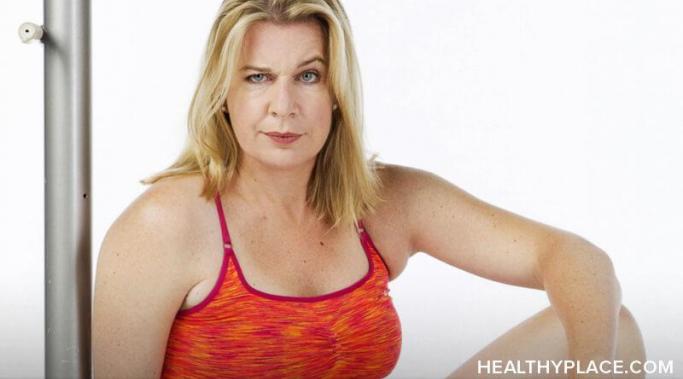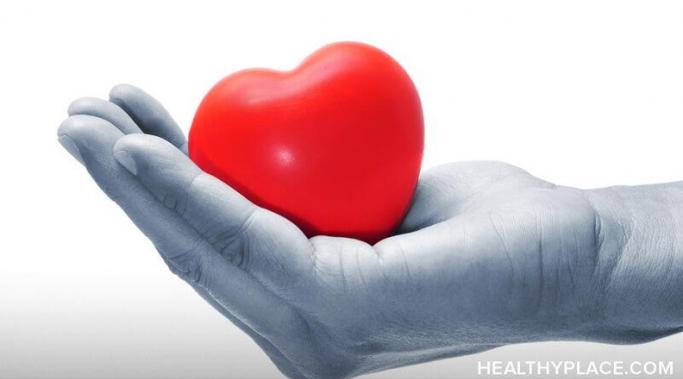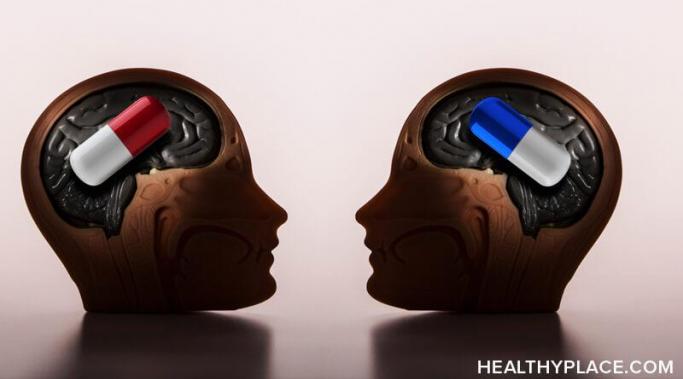Blogs
Advocacy burnout is a real thing. I once thought of mental health advocacy as a vital component of my recovery process. Being able to speak about things I’d kept silent for so long—depression, anxiety, excoriation (skin-picking) disorder—was freeing. It allowed me to find communities of people who understood and empathized instead of downplaying and stigmatizing what I felt. I would never have imagined I’d get burnout from mental health advocacy, but, truthfully, that’s where I’m at.
My medications for schizoaffective disorder cause a lot of weight gain, as readers of this blog well know. So, when I developed osteoarthritis in my knees at age 42, I started going to a nutritionist. I wanted to lose weight to take pressure off my knees. After a while, my nutritionist put me on a popular medication to support weight loss. At first, it was working really well. But then terrible side effects set in, including unbearable nausea, so I had to stop taking it.
Navigating life and relationships after facing verbal abuse is different for everyone. The tools and strategies you use to recover may not be what someone else chooses. One common aspect of recovering from verbal abuse is grace. Recognizing and providing yourself grace as you learn to maintain healthy relationships is vital for your recovery.
One of the most important things that I have learned to recognize about my anxiety, and something that I often talk about in terms of coping, is what I do when my anxiety gets triggered. This has been important because I've learned ways to avoid or confront the triggers. And so, throughout this process, I've also learned how to recognize the anxiety symptoms that I most often experience.
As a teenager, I struggled to accept my learning disability diagnosis. I didn't want to be thought of as slower than my peers. I wanted to be seen as intelligent. In my early 20s, I felt the same way about my anxiety and depression diagnoses. I wanted to be in control of my emotions by simply getting over my depression. But now, I realize that accepting my mental illness diagnoses was crucial for improvement. Here are four ways I learned to accept my mental health conditions.
Bullying and negative feedback can be devastating to your self-esteem and massively contribute to feelings of being powerless, unworthy, and alone. Overcoming these things is an essential part of your self-esteem journey. In this article, I walk you through strategies to overcome bullying and negative feedback to build your self-esteem.
With the rise of "main character energy" in the post-pandemic, there's been a lot of buzz over the past few years over the notion of "romanticizing your life." In short, this idea urges you to fall in love with your own existence the same way you might fall in love with another person. A simple Google search yields list upon list of ways you can do this. This content is fun and zesty but ultimately flawed. Approaching your romance with yourself with dos and don'ts is as effective as wooing a crush by giving them a handbook. True romance is spontaneous and melting, not structured and task-oriented. If you're interested in romanticizing your life, there's a simpler way.
Healing from a verbally abusive situation will be a unique journey for everyone. One person's strategies may not be successful for someone else. Finding the right tools to deal with the side effects of abuse can be challenging. Thankfully, I have several methods to help combat my self-doubt and reinforce my worth, including strategies like daily affirmations for verbal abuse.
Last week, I wrote about feeling embarrassed to talk about my eating disorder in face-to-face conversations. This week, I remembered why I experienced that level of embarrassment. I was raised in a climate of body shaming, forced to interact with relatives who see no issue with fatphobic comments and behaviors. I have family members who are insensitive to recovery from my eating disorder (ED).
It is common to have more than one mental illness at a time. Most people I know (from support groups) have multiple diagnoses. I have both paranoid schizophrenia and generalized anxiety disorder. I know people with schizoaffective disorder and obsessive-compulsive disorder (OCD). I also know of people with bipolar disorder and eating disorders. It is not rare to have a personality disorder along with schizophrenia, bipolar, or another diagnosis. People call it a dual diagnosis if someone has a substance abuse disorder and a mental illness.









